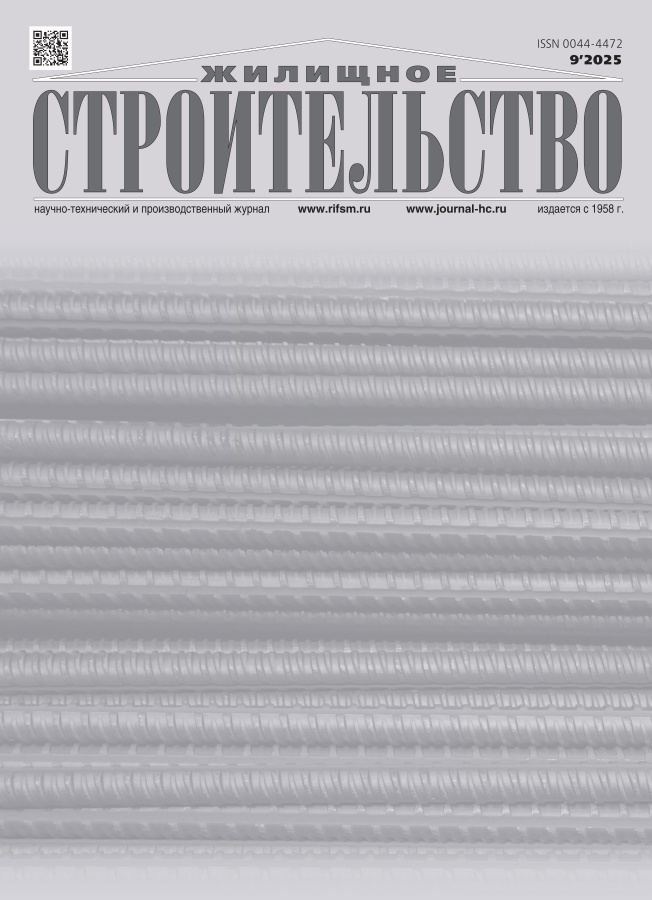Modern methods of calculation for deep excavations. Advantages of using probabilistic methods
- Autores: Chunyuk D.Y.1, Tolmachev D.A.1
-
Afiliações:
- National Research Moscow State University of Civil Engineering
- Edição: Nº 9 (2025)
- Páginas: 42-46
- Seção: Articles
- URL: https://innoscience.ru/0044-4472/article/view/692956
- DOI: https://doi.org/10.31659/0044-4472-2025-9-42-46
- ID: 692956
Citar
Texto integral
Resumo
This paper discusses issues related to the design of deep excavations. During the writing of the article, the experience of deep excavation designing was summarized and the main aspects of current approaches to solving this issue were highlighted. An analysis of the most popular software used in geotechnical practice was also carried out. The main features were highlighted. During the analysis and comparison of the most common geotechnical software systems with calculation programs from other fields, a promising direction for the development and improvement of the current capabilities of foreign and local software systems was identified. A solution based on probabilistic analysis was proposed. It makes possible to increase not only the reliability of design solutions, but also the economic efficiency of deep excavation design in case of dense urban development. The direction of automation of the design process is very relevant today and allows you to significantly reduce costs not only for the labor costs of the design companies, but also for the final implementation of construction. The automated approach will not only reduce the probability of making the mistakes during calculations but also provide a better understanding of geotechnical design. The combination of approaches based on probabilistic analysis and the idea of automation opens up wide horizons for future research.
Palavras-chave
Texto integral
Sobre autores
D. Chunyuk
National Research Moscow State University of Civil Engineering
Autor responsável pela correspondência
Email: KafedraMGG@mgsu.ru
Candidate of Sciences (Engineering)
Rússia, 26, Yaroslavskoye Highway, Moscow, 129337D. Tolmachev
National Research Moscow State University of Civil Engineering
Email: tolmachev19.99@mail.ru
Рostgraduate Student
Rússia, 26, Yaroslavskoye Highway, Moscow, 129337Bibliografia
- Zertsalov M.G., Isaev A.V. Selection of the configuration of the foundation pit spacer system in case of emergency impact. Promyshlennoe i Grazhdanskoe Stroitel’stvo. 2024. No. 2, pp. 64–69. (In Russian). EDN: UBXJTQ. https://doi.org/10.33622/0869-7019.2024.02.64-69
- Zbrys’kii M.T. Assessment of the impact of construction of reinforced soil retaining walls on abutment pile group foundation. Mir Transporta. 2023. Vol. 21. No. 5 (108), pp. 46–52. (In Russian). EDN: RMJQIN. https://doi.org/10.30932/1992-3252-2023-21-5-5
- Mirsayapov I.T. Assessment of the deep excavation effect on additional settlement of surrounding buildings. Izvestiya of the Kazan State University of Architecture and Civil Engineering. 2022. No. 3 (161), pp. 6–13. (In Russian). EDN: ESCYYW. https://doi.org/10.52409/20731523_2022_3_6
- Ganbold A. Investigation of the influence of the enclosing structure of the excavation of the «wall in the ground» type on the precipitation and roll of a high-rise building on a slab foundation. Cand. Diss. (Engineering). Moscow. 2023. 121 p. (In Russian). EDN: FOAAOH
- Istomin A.F. Analysis of articles and scientific publications on the topic of progressive collapse. Sovremennye Tekhnologii v Stroitel’stve. Teoriya i Praktika. 2020. Vol. 1, pp. 50–70. (In Russian). EDN: ROBGYY
- Shulyat’ev O.A., Mozgacheva O.A., Myshinskii V.E. Experience in designing and constructing protective measures in the form of a geotechnical barrier using the compensatory injection method. Fundamenty. 2021. No. 2 (4), pp. 18–23. (In Russian). EDN: FYMIXG
- Nesterov I.V., Merzlyakova A.D. Features of the formation of adaptive FEM grids for solving geotechnical problems. Mechanics of composite materials and structures, complex and heterogeneous media: proceedings of the 11th All-Russian Scientific Conference with International Participation named after I.F. Obraztsov and Yu.G. Yanovsky. Moscow, November 23–25, 2021. Moscow: “Sam Poligrafist”. 2021, pp. 356–361. EDN: HSKRTG. https://doi.org/10.33113/conf.mkmk.ras.2021.356_361.42
- Mel’nikov R.V., Bragar’ E.P. Assessment of fem calculation results accuracy with the use of symmetry planes in geotechnical problems. Construction and Geotechnics. 2020. Vol. 11. No. 2, pp. 28–39. (In Russian). EDN: QLBBZU. https://doi.org/10.15593/2224-9826/2020.2.03
- Sidorov V.V., Almakaeva A.S. Assessment of pile-slab foundation settlement in pseudo non-linear formulation. Zhilishchnoe Stroitel’stvo [Housing Construction]. 2023. No. 9, pp. 74–85. (In Russian). EDN: EEUICQ. https://doi.org/10.31659/0044-4472-2023-9-74-85
- Skorikov A.V., Pavlovskii N.A. Stochastic approach to assessing the reliability of the calculation results of bases and foundations depending on the sensitivity of the fem-models. Bulletin of the Scientific Research Center of Construction. 2021. No. 2 (29), pp. 101–111. (In Russian). EDN: DEVFXH. https://doi.org/10.37538/2224-9494-2021-2(29)-101-111
Arquivos suplementares











